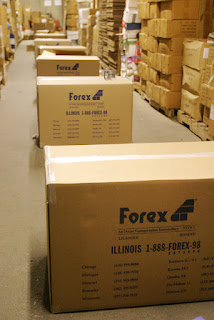This blog was created because there are concerned individuals who can no
longer stand the poverty that has befallen our people. Okay, that's pretty
ambiguous. Here is what I really mean. My friend, Maricon has shared with me
about a project she has in mind. She wanted to start a public library in a
small town in Silang, Cavite, Philippines. This is because there is zero, nada,
zilch public library in that small town and in fact the whole town of Silang,
Cavite (at least none that I know of). There might be small libraries in
schools where a few number of antiquated and beat-up books are housed. Kids
might or might not have access to these books for some reason. In short,
reading is not a priority in most public schools, towns and homes, except when
it's time to cram for exams in college. You get the point.
Maricon and I just thought maybe we could do something about this. Doesn’t
have to be big, we could start small. Maybe we could start by donating books to
elementary schools. Depending on the vigor of our potential donors, we could
soon start a community library.
Why do we want to donate books to children? Educators can't prove enough
that success in reading increases children’s vocabulary and verbal fluency not
to mention it directly affects children's school achievement. That means if a
child is a good reader, chances are, that child also excels in science, math,
social studies and overall academics.
Here is an excerpt drawn from a
review of the research literature about the effects of independent reading on
school achievement and the identification of common factors in programs
designed to promote independent reading by Bernice E. Cullinan, New York. *
“Independent reading is the kind
students choose to do on their own; it is not assigned or assessed, but it has
a positive effect on learning and school achievement. Research about the
effects of independent reading on school achievement and programs planned to
promote it demonstrates these common factors:
• The amount
of free reading done outside of school has consistently been found to relate to
achievement in vocabulary, reading comprehension, verbal fluency, and general
information. Students’ reading achievement correlates with success in school
and the amount of independent reading they do (Anderson, Wilson, and Fielding
1988; Guthrie and Greaney 1991; Krashen 1993; Cunningham and Stanovich 1991;
Stanovich and Cunningham 1993)….
•The
preschool years are crucial ones for children’s language and literacy
development (Baghban 1984; Clay 1991; Durkin 1966; Heath
1983;
Ninio and Bruner 1978; Snow 1996).
• Library programs are founded on
the knowledge that literacy experiences have a lasting effect on language
growth, reading development, and scholastic achievement (ALSC 1996; ALA 1996;
Bridge and Carney 1994; Towey 1990).”
•Common
features of effective programs designed to promote reading in schools, homes,
and libraries include access to varied material that appeals to all ages and
tastes, active parent involvement, partnerships among community institutions,
and collaboration among significant adults in students’ lives.
To read more, click on the link at
the end of post.
Here’s the point. Filipino children
do not have access to books for them to read outside the classroom. Oh, yeah,
they are given textbooks to read and memorize. That’s about the exposure to
books I had when I was in grade school in the Philippines. I never knew there
were books other than textbooks (which were really boring since most of them were
printed in black and white, and let’s admit it textbooks were not written to
entertain the readers) until I went to high school and I discovered that bookstores
and libraries existed. We had a small
library in high school but they didn’t allow kids to bring them home. How am I
supposed to finish reading a book in a half hour at the library? Maybe this is
not the case in private schools but it is in public schools. And we all know
there are more kids in public schools than private schools. And most of these
kids’ parents do not have the extra money to buy them books that interest them.
I came to the United States in 2004
and I have never seen such a plethora of books in my entire 30 years in the
Philippines! I was in heaven, I still
am. You know, books in my bedroom, books in the kitchen, books in the living room,
books in the kids’ bedroom. You get the idea. It’s my passion. My husband and
kids share that passion. And we want to share it with others.
Bottom line, this blog is our way of
reaching out to people who have access to kids’ books (K-12) and financial
resources – those who are willing to share with the less fortunate Filipino
children who have limited opportunity to hone their reading skills because they
do not have access to good books. We want these kids to be successful in
school, in life, in their chosen career so they can in turn, help their families,
neighbors, their community and their country.























